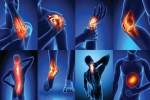Home »
Blog » Pain Management
| Stem Cell, PRP, Acupuncture in Queens & Long Island, New York
Pain Management | Stem Cell, PRP, Acupuncture in Queens & Long Island, New York
When red-hot sciatica pain sears down your leg, using ice therapy can be uniquely effective in immediately soothing the pain. The key is to know when and how to use ice therapy for the best results:
Use Ice Therapy as Soon as Your Pain Starts - Ice or cold therapy is recommended when your sciatica is acute or flares up. Cold therapy typically works by Increasing your tolerance to pain and slowing down the speed at which your nerves send pain signals to the brain; Acting locally, as opposed to taking oral pain-relieving medications, which have a body-wide (systemic) effect
Read more
Acupuncture is a complementary medical technique that has proven to be effective for chronic back, neck, shoulder, and joint pain, as well as osteoarthritis and headaches/migraines. As one of the oldest healing practices in the world, acupuncture dates back thousands of years as a form of traditional Chinese medicine. Practitioners stimulate specific points on the body—most often by inserting hair-thin needles into the skin. We combine modern technology of the West with the ancient wisdom of the East to provide you with acupuncture treatments as a natural way to relieve pain and improve your health.
Read more
Chronic pain can be caused by many different factors. Often conditions that accompany normal aging may affect bones and joints in ways that cause chronic pain. Other common causes are nerve damage and injuries that fail to heal properly. Some kinds of chronic pain have numerous causes. Back pain, for example, may be caused by a single factor or any combination of these factors: Years of poor posture, Improper lifting and carrying of heavy objects, Being overweight, which puts excess strain on the back and knees, A congenital condition such as curvature of the spine, Traumatic injury, Wearing high heels, Sleeping on a poor mattress, No obvious physical cause, Ordinary aging of the spine (degenerative changes)
Read more
Stem cell therapy is an innovative treatment for joint pain offered at Precision Pain Care and Rehabilitation. For many patients, stem cell therapy is a viable alternative to invasive surgery for pain relief. There is a lot of misleading information in the public sphere about what exactly stem cell therapy is, so make sure you get the facts before you decide whether or not this treatment is for you.
Read more
Our approach to pain management largely depends on what’s causing the pain. When it’s a byproduct of an ongoing health condition, our focus is finding a good pain management strategy to keep discomfort at a minimum. But when it’s rooted in an isolated event or injury, we can focus not only on treatment but also the prevention of chronic pain. In situations like this, it’s worth asking – can we keep acute pain from becoming chronic?
Read more
A neck spasm occurs when your neck muscles suddenly, involuntarily tighten. Your neck becomes painful and stiff, likely affecting the ability to turn your head. An awkward neck movement or stress-related muscle tension is often what triggers a neck spasm. Here’s a quick guide to relieving the pain. Stretch - Try to relax your spasming neck muscles. Stretching may be an effective method to loosen and soften your muscles, which tighten and seize up during a spasm.
Read more
Neck strains and sprains can range from mild discomfort to severe neck pain that hinders routine activities, like driving or getting dressed. Here’s how these soft tissue injuries can happen, and how to get relief. Soft Tissue Injuries in The Neck - There are numerous soft tissues that attach to the neck, including muscles, tendons, and ligaments. These soft tissues all work in tandem to support your neck and head. At the same time, they also enable movement in your neck. A neck strain or sprain occurs when one or more of these soft tissues is stretched beyond its normal range (or is injured in another way).
Read more
What Are Neck Spasms? A spasm is an involuntary tightening of muscle in your body. It often causes intense pain. This pain can last for minutes, hours, or days after the muscle relaxes and the spasm subsides. Spasms can happen in any part of your body where there’s a muscle, including your neck.
Read more
For many people living with chronic neck pain, common treatments such as medications, ice, or heating pads do not always provide enough relief. Finding the best combination of treatments for your neck pain may take some trial and error. Here are some lesser-known tips for managing neck pain that you might want to consider.
Read more
When you feel pain, it is due to certain chemical and electric signals that are exchanged between the site of injury and the brain. These signals are carried through your nerves. Neuropathic pain occurs when there is an injury or damage to a single nerve or group of nerves. Neuropathic pain differs from the more commonly understood nociceptive pain. Neuropathic pain occurs due to inflammation, irritation, or compression of the neural tissue. Nociceptive pain is the body’s response to painful stimuli, such as a pulled back muscle or broken bone, and does not relate to an injury of the nerve itself.
Read more
Love this Post? Spread the World






















